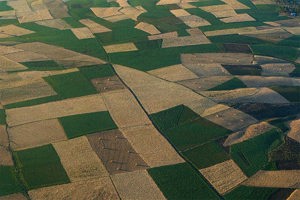Trends in the African Agri Sector
Adrian Mayer was Chair at the recent Africa Global Fund's webinar 'African Agri & Food Investing'. Adrian was joined by four excellent speakers to discuss the trends around Agriculture & Food investing, the opportunities, risks and challenges, and what the future holds for the industry.
Watch the recording here or read Adrian's article in the August edition of Africa Global Funds magazine below.
Trends in the African Agri Sector
A thriving agricultural sector in Africa is vital. The agri sector in Africa is so important to millions of people, and so many are involved in the sector whether as a small holder, farmer or consumer. Alarmingly though, hunger affects over 250 million people in Africa and that number is growing faster in Africa than anywhere else on the planet. Globally, 65% of poor working adults made a living through agriculture and in Africa the numbers are not dissimilar. At a very basic level it is about survival, but it is also about empowerment, responsible development and of course food security.
By investing in and developing the agri sector, poverty and hunger can be alleviated significantly. It is no surprise that Goal 2 of the UN Sustainable Development Goals is Zero Hunger by 2030. In that context, there is a massive interest and activity in the agri sector in Africa.
We have been active advising clients investing or operating in the agri sector in Africa since the 1990s. The spread of our involvement in the sector in Africa is wide, whether it is working on a maize investment in Uganda, a seeds business sale in Zambia, or agri processing in the Ivory Coast. Below are four broad themes we see from the client work we are doing on the Continent:
A focus on impact and smallholders
It is widely accepted that investing in agriculture or achieving growth in that sector is a proven way of reducing poverty and hunger. According to the World Bank’s 2016 report, as much as 65% percent of the adult population globally made a living through agriculture. In Africa, the numbers can be higher. For example, in Zambia 75% of the population is employed in the agri sector. Making an impact in the agricultural sector in Africa can therefore touch on the lives of millions of people. A vital part of this is finding ways to help small scale farmers by enhancing the opportunities to generate incomes, which improves lives in the process. We have seen an increase in the work we do, advising on projects that are linked precisely to this objective. Whether it is advising financial institutions looking to raise money from investors to focus on that part of the sector, or corporate entities, who invest directly into Africa to make an impact for small holders. It is not just investors involved in this but charitable organisations too, and at the heart of it is empowering the smallholder.
Longer term investment entities
We are providing advice to clients in the agri space in Africa, who think about how to structure their investments very deeply. Structuring is not just about the jurisdictions and currency issues, it is also about the nature of the entities that are used for investing. The traditional PE fund model of a limited life fund, which makes investments over a relatively short period and then realising exits to make a return, is considered by some as no longer the best or right approach for agri investments. There are participants in this sector that see the long term nature of agricultural investment requiring patient capital with longer life vehicles and or permanent capital vehicles to facilitate this.
Climate change
The impact of climate change is everywhere, and the African agri sector is vulnerable to it. Erratic weather patterns and extremes make life very difficult. The use of heat tolerant crop varieties (e.g. maize) or drought resistant seeds all play their part. Also, using sustainable framing practices and acting to decrease the carbon footprint of farming operations are also pursued. Additionally, water security is important. Globally, 70% of freshwater usage is agri sector related, and in some developing countries this percentage is much higher. The growing cycle can be badly effected with something as simple as less rainfall during the planting season - which has knock on effect for the entire growing process impacting yields, price and profit for farmers. This means that effective water storage and irrigation systems are crucial. This remains a focus for lots of investors and farm operators.
Primary and secondary agriculture investments
While primary agriculture is important, there are a number of investors and corporates looking at opportunities only in secondary agriculture, in particular on the route from the “field to the fork” (around mechanisation, logistics, food processing or services related to the agri sector). Primary agricultural investment is seen by some investors as more difficult, requiring greater levels of investment, is longer term and less certain. Meanwhile, secondary agriculture is seen as having more opportunity for growth and return.
The above is only a snapshot of course, and there are numerous factors at play in this broad and complex sector. However, it remains a fascinating sector to be involved in and one that is full of interesting projects, great indigenous talent, obvious ambition and endeavour, and one that inspires and provides real hope.













